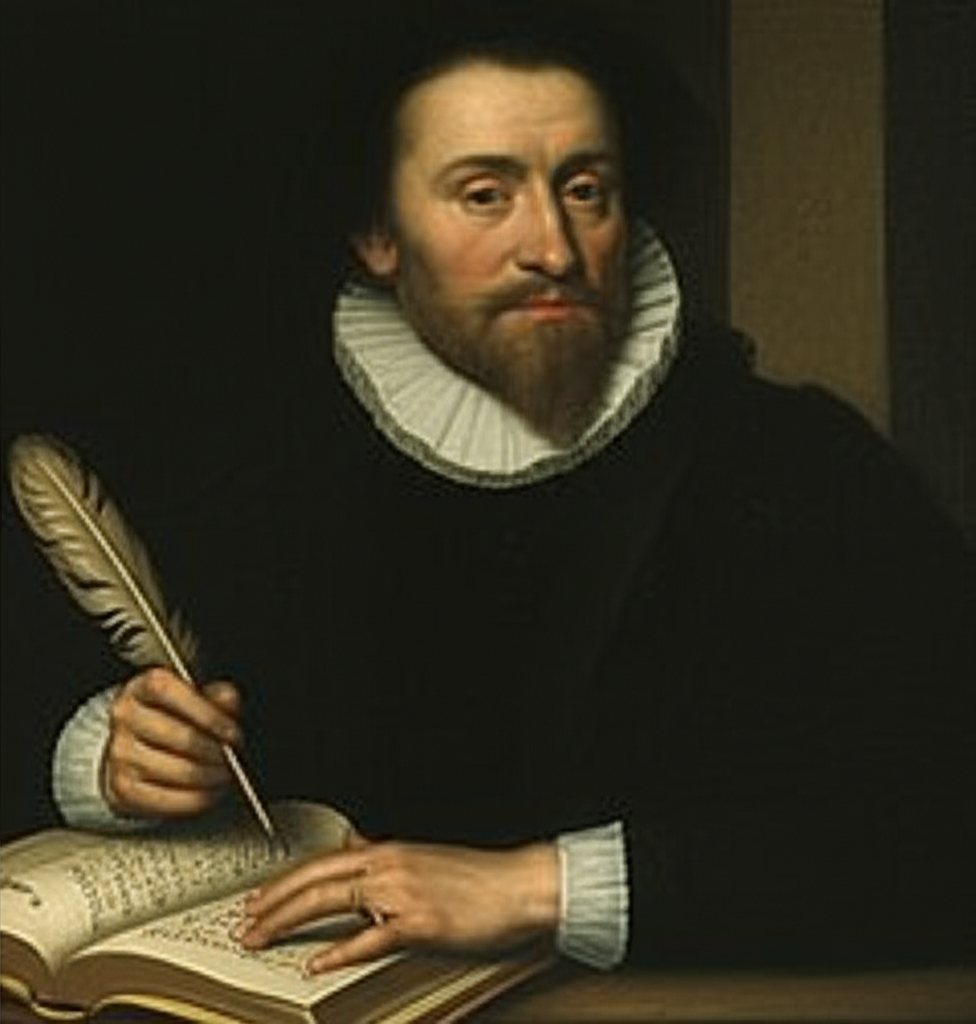
John Donne
1572-1631
An Interactive Exploration by Kalviyogi Nagarajan 369 Tesla Pvt Limited
John Donne was an English poet, scholar, soldier, and secretary who later became a cleric in the Church of England. He is considered the preeminent representative of the metaphysical poets, known for his complex imagery, intellectual conceits, and passionate intensity. His work spans both secular love poetry and religious devotional verse.
Key Facts:
- Leader of the metaphysical poetry movement
- Famous for elaborate conceits and intellectual imagery
- Converted from Catholicism to Anglicanism
- Became Dean of St. Paul's Cathedral
- Influenced by both Petrarchan and anti-Petrarchan traditions
Related Literary Terms:
Donne's collection of secular love poems, showcasing his metaphysical style with complex conceits, dramatic openings, and intellectual arguments about love. The poems range from cynical to passionate to philosophical.
Key Concepts:
Notable Poems:
A sequence of nineteen devotional sonnets exploring themes of sin, death, and salvation. These poems show Donne's intense spiritual struggles and his dramatic, personal approach to religious poetry.
Key Concepts:
Notable Poems:
A collection of Donne's elegies, showcasing his wit, cynicism, and exploration of love and relationships. These poems often challenge conventional views of love and beauty.
Key Concepts:
Metaphysical Conceit
See how Donne's compass metaphor works in 'A Valediction: Forbidding Mourning'
Metaphysical Conceit: An elaborate, surprising comparison between two very different things
Donne's Innovation: Compares separated lovers to a drafting compass - seemingly unrelated, yet profoundly connected
These animations help visualize complex literary concepts that might be difficult to understand through text alone. Each animation is designed to enhance your understanding of the author's unique contributions to English literature.